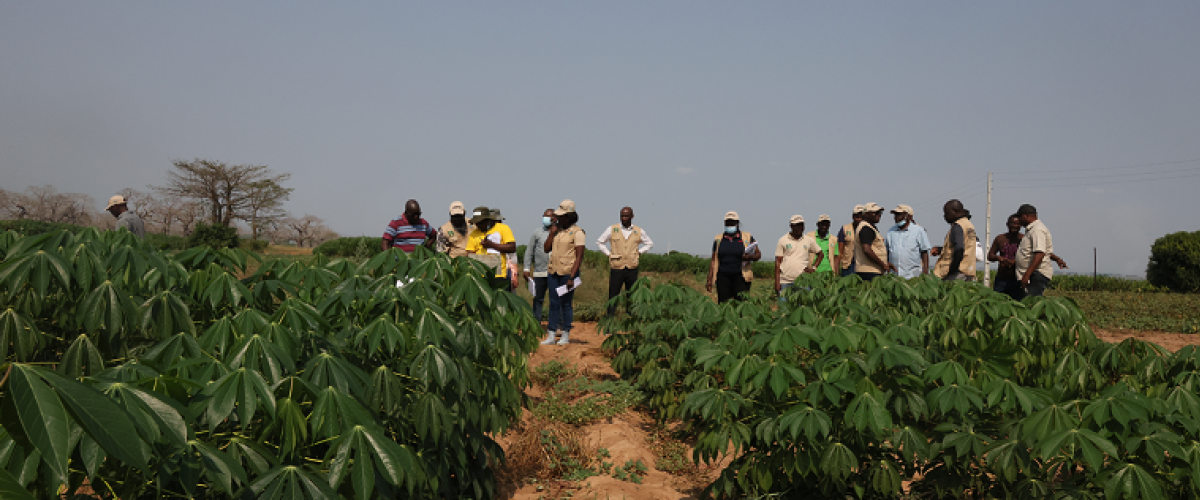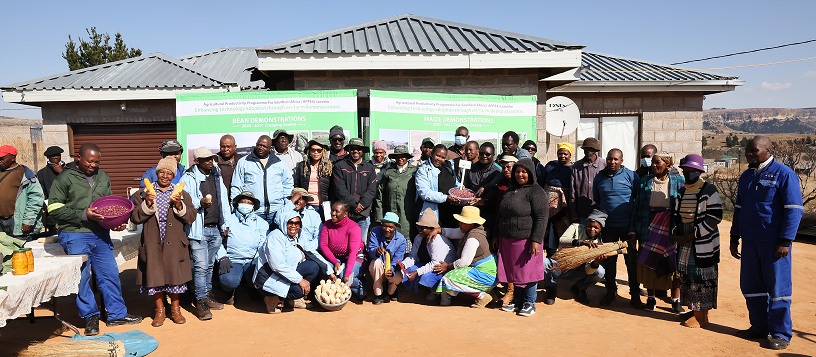
The Centre for Coordination of Agricultural Research and Development for Southern Africa (CCARDESA) undertook a technical backstopping mission for the Agricultural Productivity Programme for Southern Africa (APPSA) in the Republic of Angola and the Mountain Kingdom of Lesotho from the 20th to 25th of June and the from the 3rd to the 7th of July 2022, respectively.
The aim of the mission was to support the Cassava and Horticulture RCoLs in Angola and Lesotho to improve the delivery of their project activities while adhering to the scientific standards. Specifically, the mission reviewed progress made in the implementation of collaborative R&D sub-projects and RCoL infrastructural improvements, identified implementation challenges and proposed mitigation strategies. The mission also reviewed compliance with environmental and social safeguards management frameworks (ESMF). CCARDESA engaged a team of independent reviewers composed of an Agricultural Scientist, an Agricultural Technology Dissemination Expert and an Environmental and Social Safeguards Expert.
APPSA is a six-year World Bank funded initiative currently under implementation in Angola and Lesotho, with regional coordination by CCARDESA. Lesotho is establishing a Regional Centre of Leadership on Horticulture and Horticulture-based farming systems whereas Angola is focusing on Cassava and Cassava-based farming systems.

Farmers from Tale Resource Center (Lesotho) posing with APPSA team during backstopping mission
In Angola, the backstopping mission team visited Chianga Research Station in Huambo, Malanje Research Station in Malanje, and Mazozo Research Station in Luanda. In Lesotho, the team visited Maseru Research Station, Siloe Regional Station, Tale Resource Centre, Matlakeng Resource Centre and Mokhotlong Regional Station. In all the Stations, the technical team had an opportunity to interact with Principal Investigators (PI) of on-going APPSA R&D sub-projects. Scientists from both countries found this initiative to be of paramount importance as it was an opportunity to share successes and challenges as well as getting guidance/assistance where required. It is worth noting that this backstopping mission was a follow-up initiative of a peer review exercise for all Sub-projects held in Johannesburg in the first quarter of 2022 where it was agreed that a final review report would be concluded upon verification during site visits.
Preliminary comments from the technical team indicated that both Angola and Lesotho have adopted recommendations from the peer review meeting in Johannesburg. Technical logistical support, which was previously identified as a key limitation was successfully addressed following the development of catch-up plans and improved disbursements at country level. Regarding the quality of science, sub-projects have clear research designs and protocols as well as dissemination plans. Under M&E, it was noted that both countries have data collection tools in place and research outputs are aligned with the APPSA global result framework as stipulated in the Project Appraisal Document (PAD). Environmental and Social Safeguards instruments have been delivered to scientists implementing R&D sub-projects and on-station trials have been reported to face less risks. In addition, the mission also included discussions on infrastructure in which plans were recommended to be adjusted and implementation pace accelerated to meet deadlines without sacrificing compliance on procurement procedures as well as environmental and social safeguards requirements.

On-station trials on Peach trees at Mokhotlong district in Lesotho (left) and bean seed from Huambo Research Station in Angola (right).





